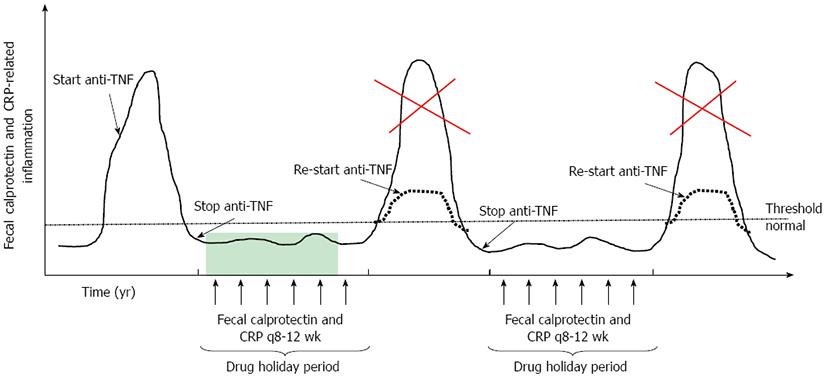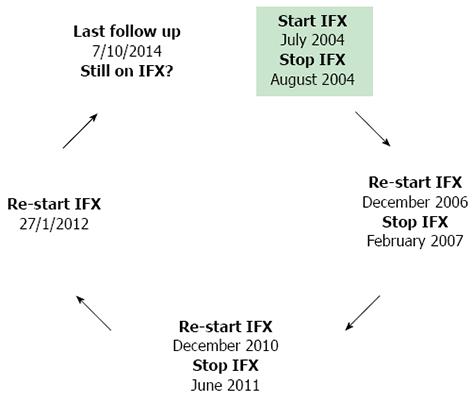Copyright
©The Author(s) 2015.
World J Gastroenterol. Apr 28, 2015; 21(16): 4773-4778
Published online Apr 28, 2015. doi: 10.3748/wjg.v21.i16.4773
Published online Apr 28, 2015. doi: 10.3748/wjg.v21.i16.4773
Figure 1 New concept of intermittent anti-tumor necrosis factor α therapy in inflammatory bowel disease.
Stopping anti-TNFα agents after achieving a deep remission may result in prolonged clinical remission. Close monitoring of these patients with fecal calprotectin and CRP measurements (arrows) will allow early re-initiation of anti-TNFα therapy, when inflammation is starting to rise, which may result to a sustained clinical benefit (dotted line) preventing a disease flare (red cross). These patients may be considered as treated periodically and not episodically. TNF: Tumor necrosis factor; CRP: C-reactive protein.
Figure 2 Successful intermittent infliximab therapy in a patient with ulcerative colitis: A paradigm from real-life clinical practice.
This is an example of a UC patient (male, age at diagnosis 33 years) with pancolitis, treated in our center, who received successfully intermittent infliximab (IFX) therapy (black arrows represent time periods of clinical remission). He has been treated with IFX for relapse, after discontinuation of the drug on his own preference while in clinical remission continuing on azathioprine. At the last time of follow up he was still in clinical and biochemical (normal CRP) remission under IFX maintenance monotherapy. This patient has never developed antibodies to IFX despite receiving interrupted therapy, while the last available (25/2/2014) trough concentrations of IFX were 8.09 μg/mL (q5).
- Citation: Papamichael K, Vermeire S. Withdrawal of anti-tumour necrosis factor α therapy in inflammatory bowel disease. World J Gastroenterol 2015; 21(16): 4773-4778
- URL: https://www.wjgnet.com/1007-9327/full/v21/i16/4773.htm
- DOI: https://dx.doi.org/10.3748/wjg.v21.i16.4773










